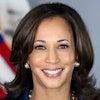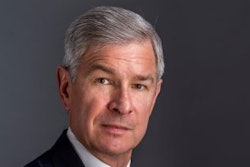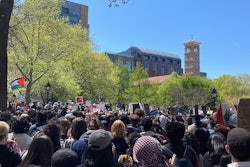The number of people who buy the NCAA’s argument that amateurism is the backbone of college sports is dwindling by the day.
The notion is increasingly being challenged in the courts, questioned by Congress and, earlier this month, some of the kids on whose backs the business is actually built decided to call the organization’s bluff. More than 300 major college football and men’s basketball players signed and sent a petition to the NCAA asking the college presidents who run it to spend some of their new-found riches on education.
“The things we go through, the hours we put in, what our bodies go through, we deserve some sort of (results),” said Georgia Tech defensive end Denzel McCoy, a redshirt freshman who signed and helped circulate the petitions drawn up by the National College Players Association (NCPA), an athletes’ advocacy group. “College football is a billion-dollar industry,” he added.
The NCPA petition doesn’t ask for a specific amount to be set aside, or for players to be paid salaries. Instead, it seeks a hike in scholarships of about $3,200 to make up a shortfall in school-related expenses each year, better medical coverage and an “educational lock box” that players could use to fund their educations if they’re permanently injured or exhaust their athletic eligibility before they graduate. They also would be entitled to what’s left in the lock box upon graduation, with no strings attached.
The response from the NCAA, which begins its quarterly Division I Board of Directors meeting on Wednesday in Indianapolis, has been near-total silence.
“We’d eventually like a seat at the table, but all we asked for off the bat was a meeting,” Ramogi Huma, a former UCLA linebacker who founded the NCPA more than a decade ago, said Tuesday over the telephone from his office in California. “I’m looking at the letter from (NCAA President Mark) Emmert right now. The answer was a definite ‘no.’”
Instead, Emmert will get up in front of an informal meeting with university presidents and unveil the organization’s latest meager stab at reform: a proposal to be voted on Thursday that would give each conference the option to dig into its own pocket and increase the cost of a scholarship by about $2,000. That sum won’t solve any of the problems currently bedeviling major college sports; in fairness, $3,200 wouldn’t make a dent in the number of athletes taking money under the table, either, and it might actually make things worse. College football and basketball, the big-revenue-producing sports, already suffer from a widening gap between the haves in the six major conferences and the have-nots who compete outside them.




















